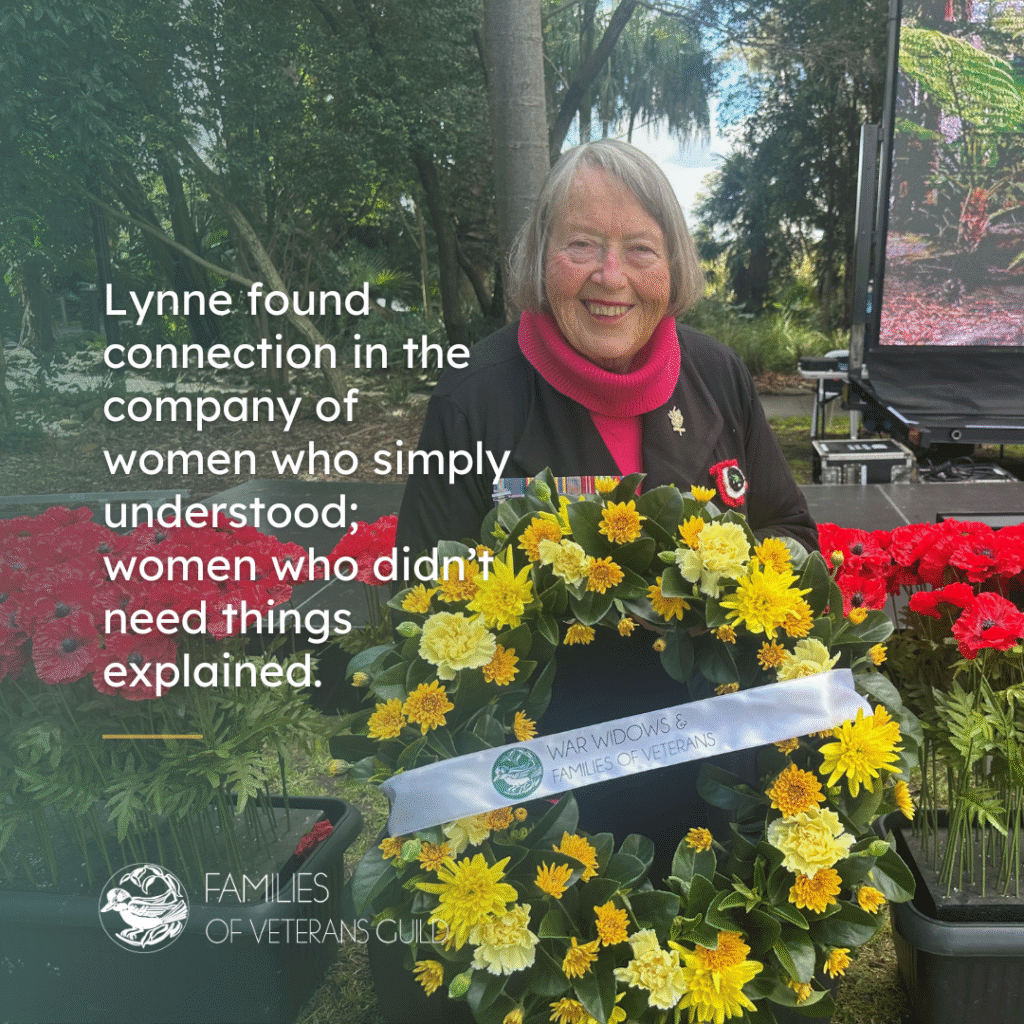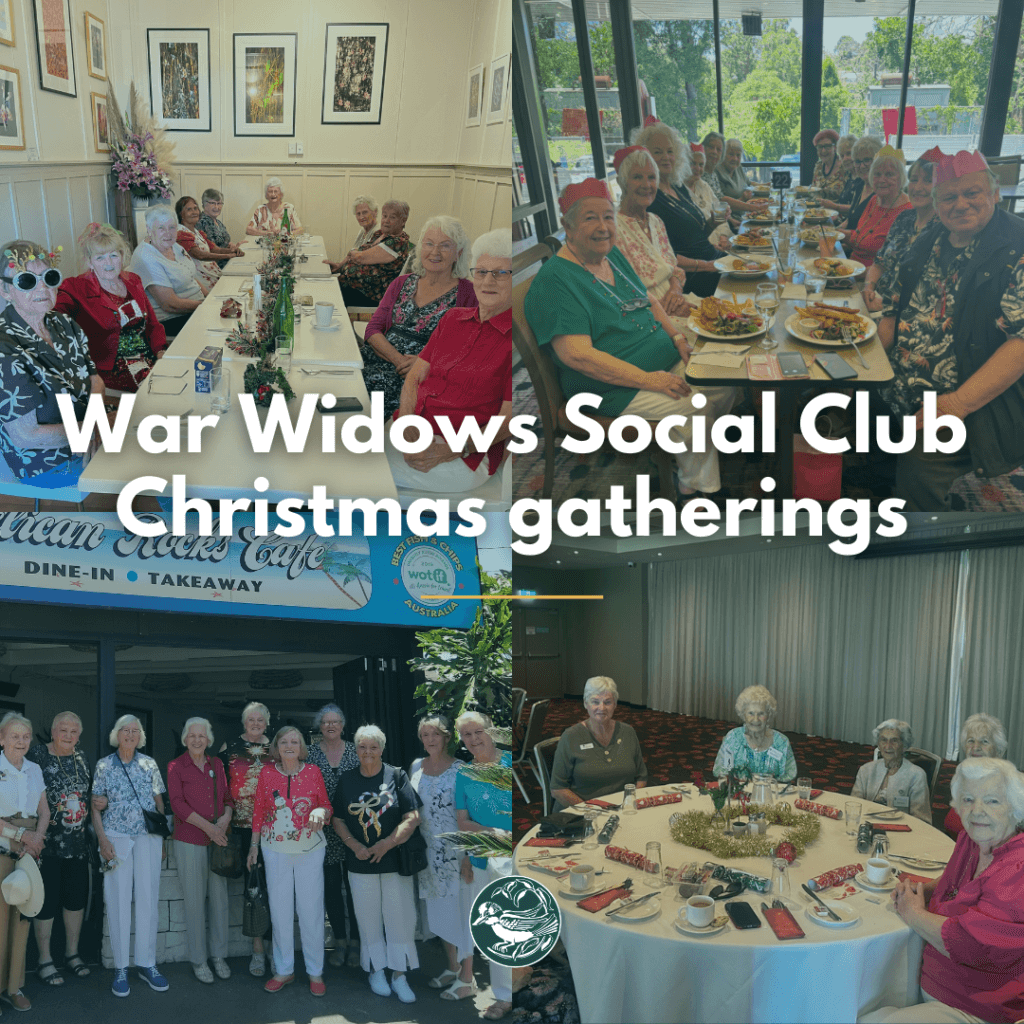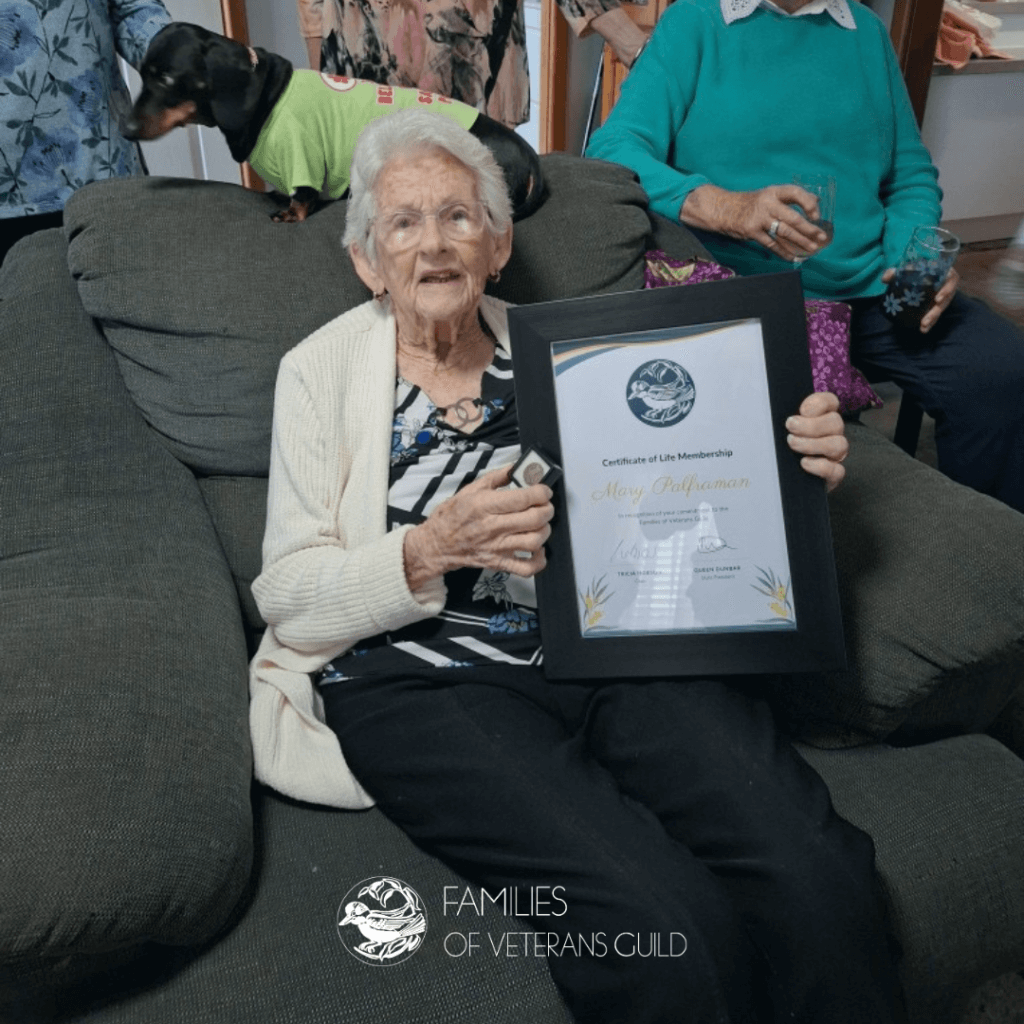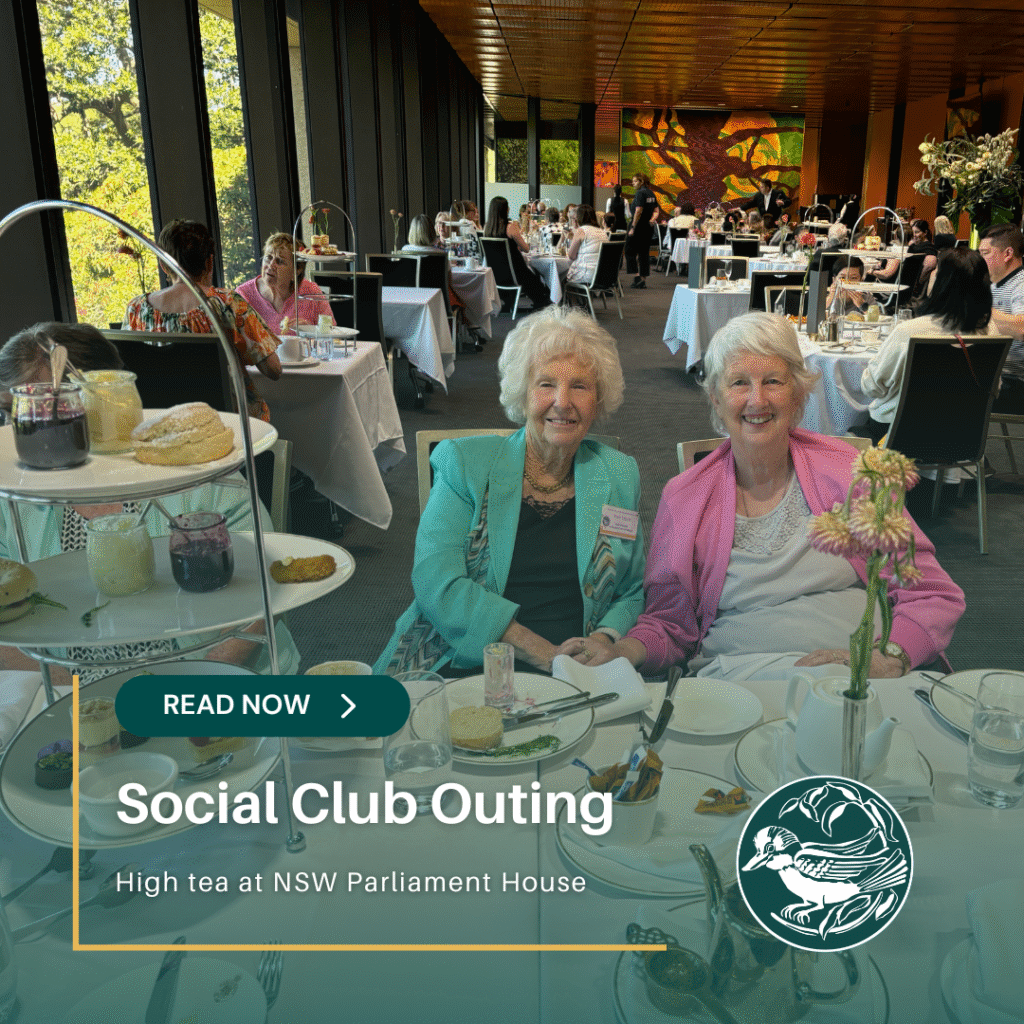Lynne, a member of the Board of Directors for the Families of Veterans Guild, recently shared her story with us. She was widowed ten years ago, after the passing of her husband Patrick, who had served 25 years in the Royal Australian Engineers.
Lynne spoke of the long and difficult years supporting her partner as he struggled with post-traumatic stress disorder. “While I was not married to my husband during his years of active service, I lived with him and the impact of that service for 24 years,” she said. The weight of his service was carried home and into their family life, affecting them all.
Lynne described the experience of living each day with the uncertainty of what might unfold: “Losing a life partner in battle would be devastating. However, living with a veteran who bares the scars—physical and/or mental—of their service could be traumatic for their partner and family, creating tensions that are rarely understood by those outside the defence community, which could lead to social alienation. This could manifest in the stress of family members never knowing what they would encounter when they come home.”
Finding the Guild during difficult times
It was a constant struggle navigating the complex demands of parenting, work and study while supporting a partner whose moods and involvement in family life were unpredictable. It placed a heavy toll on the emotional wellbeing of the family. Like many, Lynne didn’t know about the Guild until well after Patrick’s passing. Back then, it was a place for widows. But as she reflected on those earlier years of navigating the impact of service on family life, it was clear how much that kind of support would have mattered, even then.
Lynne was introduced to the Guild by her close friend Nola, also a war widow. At first, she hesitated. “Most of the people already knew each other,” she recalled, and it was easy to feel unsure of her place. The idea of joining something unfamiliar—especially in a space where long-standing friendships already existed—brought mixed emotions. But over time, Lynne found connection in the company of women who simply understood; women who didn’t need things explained. Their shared experience created a solidarity that helped her feel less alone.
Building friendships with women who understand
There was no need to downplay emotions, explain trauma, or prove that she belonged. Being part of the Guild helped Lynne build lasting friendships and find a support network she hadn’t realised she needed. She felt seen and understood in a way that was rare outside the defence community.
What started with hesitation turned into so much more. Through social events, shared conversations, and simply being among peers, Lynne gradually began to feel a sense of belonging. Meeting other women who had walked similar paths allowed her to move forward, not by forgetting the past, but by being understood within it.
As her involvement grew, Lynne eventually nominated for the Guild’s Board of Directors. While she admits the role has required far more than “just a few meetings a year,” she finds the work rewarding and important. It has given her the opportunity to meet members through social clubs and regional visits; what she describes as vital connection points, particularly for older members. For some, it is their only outing for the month. “I love seeing how it allows some ladies to have a day to themselves and get dolled up.”
She has seen first hand how something that might have appeared small—a lunch, a conversation, a visit—could have a lasting impact. These moments provide structure, purpose, and a sense of normality, particularly for those who are feeling isolated. As Lynne often says, these aren’t just social groups, they are a lifeline.
Embracing change and inclusion for families of veterans
Over the years, Lynne has witnessed the organisation evolve into a flexible and inclusive organisation. “There was a very strong point in getting change in the name from war widows, because a lot of the people that are needing help now are probably in younger sort of cohorts, and they may not even be widows; they might be divorced, they’ve got families, all sorts of things.” She acknowledges the transition hasn’t been easy for everyone, especially as definitions of ‘war widow’ and ‘veteran’ continue to shift. But she sees value in adapting to the needs of younger generations, and in sharing with them the stories of strength and resilience that war widows have long carried. Lynne hopes their stories offer guidance and courage to those navigating defence life today.
Serving on the Board has given Lynne an even deeper understanding of how diverse members’ experiences can be. While everyone’s story is different, there are familiar threads that run through each one: grief, perseverance, responsibility and strength. These are not always visible from the outside, but within the Guild, they are known, acknowledged, and shared.
Lynne reflected humbly on whether she had made an impact. But her steady presence, her advocacy, and her willingness to listen speak volumes. Her story shows that the need for support often begins well before widowhood, and that the Guild’s broader focus on veteran families today is not just a change, but a long-overdue step forward.




